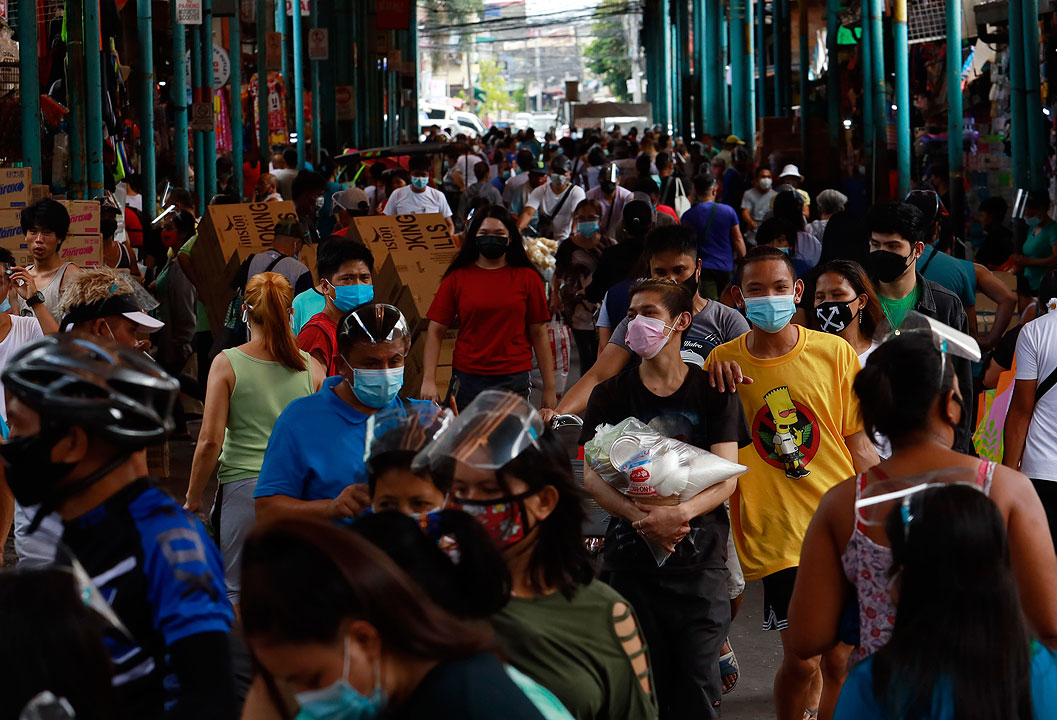
Numbers Don’t Lie
By Andrew J. Masigan

Is the pandemic finally behind us? The National Economic and Development Authority (NEDA) would like to think so. In a recent conference with the Management Association of the Philippines, Socioeconomic Planning Secretary Karl Chua outlined our path to full recovery.
As we are painfully aware, the economy contracted by a massive 9.6% in 2020 due to government’s heavy-handed approach to contain the virus spread. The wide militaristic lockdown paralyzed supply chains across the archipelago, disrupted manufacturing, and consigned our vibrant consumer-driven economy to a state of coma. All these could have been avoided if only government had mobilized a testing campaign at the onset coupled with a functional tracking and tracing system. The absence of a testing, tracking, and tracing mechanism left the authorities with no choice but to resort to debilitating lockdowns. But this is all water under the bridge now.
Last year was much better for us as the economy slowly opened up, albeit with heavy restrictions in April and May and again in August and September. All things told, the economy grew by 5.6% in 2021, well within government’s forecast. Unemployment declined from a high of 17.6% in the second quarter of 2020 to 6.5% in November 2021. At the rate we are going, the economy will finally reach its pre-pandemic level six months from now. The economy took a beating but the worst seems to be behind us. Now is the time to rebuild.
As this administration nears the end of its mandate, NEDA commits to vigorously complete our economic recovery and above all, restore the jobs that were lost. It laid out a 10-point plan designed to make the country bounce back stronger whilst preparing our institutions for future health emergencies. Here are the components of NEDA’s plan:
First, change the matrices used in deciding restriction levels. From basing decisions on gross caseloads, NEDA proposes that decisions be based on the cases that require hospitalization. Further, instead of looking at gross number of deaths, decision makers will be made to look at the ratio of case fatalities. All these are meant to better calibrate the level of restriction against realistic threats.
Second, accelerate vaccination. As of Feb. 20, a total of 133 million vaccinations have been administered. Sixty-two million are fully vaccinated, and 9.5 million received their booster shots. The vaccination drive will continue until the entire population is inoculated. Booster shots will be made available every year.
Third, increase hospital bed capacity. Hospital bed capacities have increased seven-fold over the last two years to 40,250 beds. Despite the spike in Omicron cases, the bed occupancy rate was only at 44.4%.
Fourth, quantify the impact. NEDA had quantified the impact on economic output (through GVA, or gross value added) and employment for all five restrictions levels. Knowing the impact will allow the authorities to be more judicious when adjusting restriction levels. For perspective, when Alert Level 5 is raised, P133.5 billion worth of GVA and 2.29 million jobs are lost per week in Metro Manila Plus alone. Whereas when we are on Alert Level 2, only P11.2 billion of GVA and 191,000 jobs are lost.
Fifth, education. The Duterte administration dropped the ball on education. Lamentably, they failed to act fast enough nor did they realize the urgency of reopening of schools. Even worse is the disconnect in policy. While schools remain closed, children were allowed to visit malls on Alert Level 2.
NEDA hopes to replicate the system of the European Union where schools remain open but are subjected to the strictest safety protocols and a staggered attendance arrangement. Decisions on school closures will be devolved to local government units (LGUs). Mental health support will be established in every campus and communication campaigns will be made more efficient between LGUs, students, and parents.
Sixth, domestic travel. Tourism contributes 12.5% of GDP and provides jobs for 5.4 million of our countrymen. To activate domestic travel, NEDA proposes that the gamut of requirements imposed by airlines, hotels, and LGUs be eliminated. In its place, a vaccination card and an inter-scannable QR code will be made the only requirements.
Seventh, international travel. The idea is to realign inbound and outbound travel requirements with global standards. Whereas before, only inbound travelers from “green” countries are exempted from quarantine, very soon, quarantine will no longer be a requirement for fully vaccinated travelers, regardless of origin. In addition, inbound flights and passenger quotas will be lifted.
Eighth, accelerate the digital transformation. Digitizing government’s operations will make it more agile. Fundamental is the quick implementation of the Public Service Act to expand telecommunication services. This will have to be supported by the full implementation of the Executive Order liberalizing satellite services, the Philippine Space Act, and Balik Scientist Act, among others. Still awaiting passage is the Open Access in Data Transmission Act and Internet Transactions Act.
While the process of digitization has started, experts estimate that it will take at least six years for the entire bureaucracy to complete the migration.
Ninth, enact the pandemic flexibility bill. We should never be caught flatfooted again when future medical emergencies strike. The pandemic flexibility bill will complement the existing Philippine Disaster Risk Reduction and Management Act in that it allows budget flexibility. It also allows data privacy relaxation and better alignment of protocols between the national and local governments.
Tenth, learn from our experience. NEDA is in the process of creating a “pandemic playbook” to lead us through the next health emergency. Based on our COVID experience, the playbook will provide a step-by-step guide on action points suitable for various circumstances. It will also provide best practices and insights learned.
The country paid a steep price for being unprepared for COVID. We applaud NEDA for not letting this learning experience go to waste and using it to better prepare for future emergencies.
Meanwhile, there is a lot to do to put our economy back on track and generate the jobs that were lost. NEDA’s transition plan will enable us to recover faster.
Andrew J. Masigan is an economist
Facebook@AndrewJ. Masigan
Twitter @aj_masigan